 We are in the time of the Upper Room, the Cenacle. The days between the Ascension of the Lord and Pentecost are liturgically the time when the Blessed Virgin Mary, the Apostles, and the disciples were together in prayer, awaiting the coming of the Holy Spirit. They did not really know what to expect. In fire and wind, the Holy Spirit came, and their lives were transformed forever. The world is also transformed and is transforming. The mission continues in the name of Jesus Christ! We are sent as apostles, as missionary disciples, out into the world. Hiding in a room, in our homes, even in a church is not our call. Instead, we go forth, going where the Holy Spirit moves us to go. We can do amazing things in the name of Jesus Christ. There is no need to wait until someone invites us. No, if we are baptized, and especially if we are confirmed, then we can go forth! We need to recognize, though, that we do not send ourselves. We are sent by Christ, in and through his Church. The community of faith that we call Church is where we go forth from and to which we return. The Church teaches us, forms us, heals and nourishes us through the Sacraments, and sends us on mission. The mission is not ours; it is Christ’s. We, as members of Christ’s Faithful, are called to live his mission until he comes again, just as the Apostles were told to do. In all of this, Mary, Queen of Apostles, is with us as our Mother and Queen. Her feast day is the day before Pentecost. She was the perfect disciple of Christ. St. Vincent Pallotti said of her: “We have most holy Mary, after Jesus Christ, the most perfect model of true apostolic zeal, and of perfect love” (OOCC I, 7). The Decree on the Apostolate of the Laity of the Second Vatican Council echoes this sentiment of Pallotti: “The perfect example of this type of spiritual and apostolic life is the most Blessed Virgin Mary, Queen of Apostles, who while leading the life common to all here on earth, one filled with family concerns and labors, was always intimately united with her Son and in an entirely unique way cooperated in the work of the Savior… All should devoutly venerate her and commend their life and apostolate to her maternal care” (4). Mary, Queen of Apostles, pray for us! May the charity of Christ urge us on! To learn more about Mary, Queen of Apostles, please click here. **This blog was originally published on May 19, 2021.**
0 Comments
“Why are you standing there?” The angels who spoke these words to the astounded disciples now turn to ask us this question today. Perhaps, like the disciples after the Ascension, we too have been stuck looking up at the sky, wondering where Christ is. Our answers to the angels’ question are probably very legitimate. “I am standing here because I lost my job, because of isolation, because of sickness, because of racial and social discord, because of people’s differences, because I don’t know what else to do.” In this passage from today’s Gospel reading, which is the same as this upcoming Sunday’s, I remind myself that at least the disciples were looking up. They at least had their eyes fixed on Christ. That, in and of itself, is a good thing. But what God wants to convey through the angels after Jesus’ Ascension is that just seeing Christ or believing in him is not enough. A relationship with Christ results not in paralysis, but in action. “You will be my witnesses,” Jesus tells his disciples moments before he ascends to the Father. And it is by living out our relationship with Christ as witnesses that the world comes to know him and that our faith comes alive. Witnessing to our faith and accompanying others on their faith journeys shake us out of our paralysis and help us overcome our fear. Jesus is not conveying that hardship, suffering, or unrest will be absent from our lives, but that these no longer have the power to paralyze and trap us. His Resurrection has changed the narrative. And as the Easter season comes to a close, Jesus is calling us not only to believe in him, but to act— to have our lives transformed by the knowledge of the Resurrection and to live boldly and faithfully as a result. At this point, however, the disciples are still focused on earthly things. Just before Jesus’ Ascension, they ask him, “Lord, are you at this time going to restore the kingdom to Israel?” Many of us have similar questions. “Lord, at this time will I get my job promotion? As this time, will my addiction be healed? At this time, will our family be reconciled?” These are valid, important questions of the human heart. Questions that long for answers, for resolutions, for miracles. Jesus’ response seems mystifying and even unrelated: “You will receive power when the Holy Spirit comes upon you, and you will be my witnesses.” While the disciples are still caught focusing on the restoration of Israel and victory over their oppressors, Christ promises more. So much more, in fact, that they are unable to grasp it without the gift of the Holy Spirit, whose coming we celebrate on the Feast of Pentecost on May 23rd. It is why Jesus chose to ascend at this time. He had spent 40 days teaching and opening the Scriptures to his disciples after his Resurrection, but they still could only fathom human goals and objectives. Jesus knows his ministry has come to an end and that a new chapter of the Church will begin with the promised Advocate, the Holy Spirit. After he answers them, Jesus compels his disciples to look up to the heavens as he begins to ascend to the Father. He is physically showing them the needed disposition of their hearts and minds in order to receive the Holy Spirit: they should be considering heavenly things and a heavenly goal. But then, moments later, they are startled to hear: “Why are you standing there looking at the sky?” It can be tempting at times to separate ourselves from the reality of the here and now by over-spiritualizing things or being preoccupied with the past or future. The disciples are left looking up (very understandably), but this looking up and clinging to Jesus in his physical form distracts them from the action to which he has called and chosen them: to be his witnesses to the ends of the earth. This balance between living in the world but not of it can be difficult to grasp and practice. It’s important first to consider where you find yourself today. Are you asking the Lord to restore the kingdom to Israel? Are you standing looking at the sky? Many of us are somewhere in between. Below are 6 practices that help ground me in Christ and deepen my ability to witness to his love:
By considering these practices, it is my hope that, renewed by the Holy Spirit at Pentecost, we will enter into Ordinary Time ready to be Christ’s witnesses to the ends of the earth. Christ calls us each to so much more than simply remain standing. For more resources on living as missionary disciples, please click here. **This blog is a repost from May 13, 2021.** **This image is from: https://young-catholics.com/3256/the-feast-of-the-ascension-year-b/** “She said yes!” is commonly heard in engagement stories, echoing the excitement and joy of making the decision to have one’s life forever complemented with another in marriage. As we prepare to celebrate the Solemnity of the Annunciation on Saturday, the Church rejoices in Mary’s acceptance of God’s place for her in His divine plan of the salvation of mankind. Of course, Mary’s “yes” to God is not the only such instance in Scripture; on the contrary, each protagonist’s story within its pages involves his or her responding to the will of God throughout history, from God’s command to “be fruitful and multiply” to Adam and Eve through his instruction to the exiled St. John the Evangelist to “Write, therefore, what you have seen, what is now and what will take place later.” Just like each person in Scripture, we too can share in the delight of accepting God’s will for us through our faith and the surrendering of our personal desires and wants to Divine Providence.
Every book of the Bible recounts at least one instance of God calling a prophet, judge, king, or another figure, no matter their status, to a higher purpose. I particularly enjoy the story of the boy Samuel, whom God called three times before the future judge and prophet, finally understanding Who kept waking him, answered. All of these accounts are more than nice stories—they serve to illustrate the different ways of answering God’s call as well as how God continues to guide us after we answer. The biblical theme still rings true today: “I have called you by name, and you are mine.” On the occasion of the Annunciation, Mary’s “yes” undoes Eve’s “no” to God. Through Mary, the Word was made flesh and she became the new “Mother of the Living” (CCC 489). This motherhood extends to us all! As a result of Mary’s “yes,” she became a tabernacle of the living God now made man. Christ’s complete embrace of humanity during His earthly ministry still affects us today. We are called to allow Him to more fully enter into our lives just as He did in the Virgin’s womb. By creating space for Christ, as Mary did, we are enabled to fully surrender to the Divine Will; our “yes” to God can then echo Mary’s crucial response, “Behold, I am the handmaid of the Lord. May it be done to me according to your word.” How shall we respond? At the Archdiocese of Washington’s Rite of Election this past month, I was blessed to observe over a thousand adults, teens, and children be presented to the Cardinal in order to be baptized or confirmed as Catholics in the Archdiocese of Washington this Easter. They, like Mary, have said “yes!” to God’s invitation. It’s a beautiful witness to see the participants’ formal expression of their desire to become Catholic before their loved ones, sponsors, and the Church. The Rite of Election kicks off a final period of intense spiritual preparation much like our experience of Lent, in which they are called to follow the Lord. As baptized members of Christ’s Body, we are called to offer our support, love, and prayers for these catechumens and candidates as each continues his or her faith journey, that all may strive to remain close to the Lord Who has called them to Himself. Our “yes!” does not occur in a vacuum. Even the already baptized are called to be a light for each other as each of us experiences darkness in our lives. No matter our insecurities or doubts, no matter our past failings or unworthiness, God still continuously calls to us, ever lovingly, ever patiently, ever gently, ever earnestly. Mary had her own questions when the archangel Gabriel dramatically announced God’s plan for her. If you’re like me, you want all the details before making a decision! But, as we read throughout scripture, one’s trust in God is never misplaced. God can—and does—do great things through us if only we allow ourselves to be like “a little pencil in the hand of a writing God.” May we, then, always share the Good News of Christ’s Resurrection, the hope that we share as we receive Communion, as we journey to the Cross, and as we profess—and experience—God’s love. By the grace of God and the support of each other, may we, at every moment of our lives, join with the whole Church and the heavenly host to praise God for His mercy and goodness: “‘Our Savior, Jesus Christ, has destroyed death, and brought us light and life!’ No wonder we [reply], ‘Alleluia!'” (Cardinal Timothy Dolan) **This blog was originally published on March 23, 2017.** In St. Peter’s speech at Pentecost he proclaims, “But God raised him up, releasing him from the throes of death, because it was impossible for him to be held by it.” (Acts 2:24) The truth of St. Peter’s words is made manifest in the liturgical rhythm of the Church year. Just as our Lord could not be held by the grave, the celebration of Easter cannot be held to just one day. In her beauty, the Church does not stop at the Octave of Easter either, but offers the faithful an entire liturgical season—50 whole days—to glory in Jesus’ resurrection. As Pope St. John Paul II declared, “We are an Easter people.” But once the beautiful liturgies of the Octave are behind us, the Easter lilies are removed from the churches, and the carrot cake has all been eaten, how are we to be an Easter people?
One good place to begin is entering into the celebration of the liturgy. I have a distinct childhood memory of attending Easter Sunday Mass while my family was away on spring break. During the homily the priest invited everyone to exclaim ‘alleluia!’, and then do it again because we weren’t enthusiastic enough. As an unobservant and not-the-best catechised child, the purpose of this exercise was lost on me. But now, as a frequent daily Mass attendee I am much more aware of the forty long, alleluia-less days of Lent and more fully appreciate the significance of proclaiming alleluia together with renewed vigor on Easter and in the days that follow. During Lent many of us are motivated to make more time for Mass or prayer in our lives, which are beautiful practices to continue through the Easter season and beyond. Throughout the Masses of the Octave, the Victimae paschali laudes, an ancient chant, may be recited before the Gospel. Whether you attend Mass and hear the chant or simply take time to meditate on it each day, it is a beautiful tool for reflecting on the Paschal mystery in our lives and offering extra praise to the Lord: “The sheep are ransomed by the Lamb; / and Christ, the undefiled, / hath sinners to his Father reconciled.” Just as Lent is a time of remembering our mortality, Easter can be a time of remembering our Eternal life. Another liturgical tool to draw on is the Liturgy of the Hours, the communal prayer of the Church. In Morning Prayer throughout the Octave, we use the same psalms and canticle of Easter Sunday morning for all eight days. Particularly striking is the Canticle of Daniel (Daniel 3:57-88, 56), in which we pray that all things on Heaven and Earth bless the Lord: Let us bless the Father, and the Son, and the Holy Spirit. Let us praise and exalt him above all forever. Blessed are you, Lord, in the firmament of heaven. Praiseworthy and glorious and exalted above all forever. Whether you are able to pray Morning Prayer, or any of the other hours, in community or humbly pray them alone, you are still raising your prayers with all the faithful throughout the Earth and elevating them through Jesus to the Father. Throughout the Easter season, the first readings at Mass are taken from the Acts of the Apostles. Practically this makes sense since Acts recounts the events following Jesus’ death and resurrection. But there is also a spiritual significance to reading from this book during the Easter season. Just like His first disciples, we aren’t meant to keep our alleluias and joy in the Lord’s resurrection and salvation confined to our churches or to ourselves, but to proclaim them to the world. It took a little encouragement for the apostles to do this, and so it may for us, but we too can say with St. Peter: “He commissioned us to preach to the people and testify that he is the one appointed by God as judge of the living and the dead. To him all the prophets bear witness, that everyone who believes in him will receive forgiveness of sins through his name.” (Acts 10:42-43) The Easter season is a grace-filled time to unite ourselves to this age-old mission of the Apostles and share the Good News of Jesus. The Catechism of the Catholic Church tells us that, “Beginning with the Easter Triduum as its source of light, the new age of the Resurrection fills the whole liturgical year with its brilliance.” (Paragraph 1168) At the Easter Vigil, the faithful are invited to renew their baptismal promises and remember the light of Christ that is within them. As we make our way through the Easter season, let us glorify Christ in the liturgy and let the brilliance of the Eternal Light shine forth from our churches and our hearts. 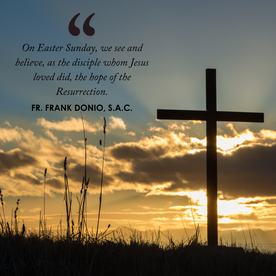 The time of the Paschal Triduum and the Easter season are almost upon us. How has the time of Lent been? It is meant to be one of ongoing conversion to Christ – metanoia. The Triduum offers us a deeper time of conversion. The Gospel readings of those days give us much to reflect on our own discipleship of Christ. On Holy Thursday, during the Mass of the Lord’s Supper, we experience table fellowship, the first Eucharist, and the witness of Christ in service to his Apostles through the washing of the feet. It is an example that we are called to follow. During the Commemoration of the Passion of Our Lord Jesus Christ, we hear of the betrayal of Judas, the denial by Peter, the suffering of Jesus, and the grief of those at the foot of the Cross, especially the Blessed Virgin Mary. In what occurs, we consider the ways in which we have not lived for Christ and how we can unite our suffering to his on the Cross. At the Easter Vigil, in the announcement of the angel to Mary Magdalene and the women at the tomb, we learn about the possibility of eternal life given to us all through the Risen Christ. On Easter Sunday, we see and believe, as the disciple whom Jesus loved did, the hope of the Resurrection. In this hope, we proclaim the Risen Christ as Savior of the world! Metanoia, ongoing conversion, is a patient journey that leads to our true joy, deeper encounter with the Risen Christ! May the charity of Christ urge us on! May you have a blessed Paschal Triduum and a joyous Easter! In God, the Infinite Love, Fr. Frank “Peter and his companions had been overcome by sleep, but becoming fully awake, they saw his glory and the two men standing with him.” -Luke 9:32 Twice in the Gospels we hear of the trio of disciples sleeping at pivotal moments in Christ’s life and ministry: at the Transfiguration – in this Sunday’s Gospel – and in the Garden of Gethsemane during Christ’s Agony. Both times, Christ is in deep prayer. And both times, Peter, James, and John are “overcome by sleep.” I get it. The group of men have just hiked up a mountain. It would have been normal to rest after such a grueling endeavor. Similarly, in the Garden, Jesus took the three disciples to pray after the Feast of the Passover—a long, filling meal complete with wine. I think of all the times I’ve napped after a holiday meal and sympathize with Peter, James, and John. In these scenes, they are so human. They become tired and rest their eyes. And yet, because of their physical tiredness, they miss out on God’s glory. In this week’s Gospel for the Second Sunday of Lent, Jesus is transfigured and his three beloved disciples are offered a glimpse of the glory to come—not only the glory of the Resurrected Christ, but the glory that awaits all men and women who allow themselves to be transformed by his grace. This Lent, I find myself asking, “Am I asleep with his disciples? What’s causing me to shut my eyes to God’s glory?” These questions are what have guided my Lenten journey as I discern how to grow in holiness this season. Each year, the Church in her wisdom asks us to reflect on what is making us spiritually sluggish and helps us prepare for Easter through prayer, fasting, and almsgiving. By ramping up in these three Lenten tenets, we can grow in our ability to see God’s will and the Holy Spirit at work in our lives. Had the Apostles been awake throughout the entirety of Christ’s Transfiguration, they would have basked longer in this glory—fear and confusion would not have gripped them. Lent calls us to wake up, to be alert, not only for the Easter celebration, but for God’s invitation to greater holiness throughout our lives. Pope Francis highlights Lent as the continuation of the “journey of conversion.” This journey is a lifelong one. And yet, seasons such as Lent, which focus on an even greater attention to prayer, fasting, and almsgiving, often spur us deeper and further on this journey towards Christ. As Pope Francis encouraged in his 2019 Lenten message: Let us not allow this season of grace to pass in vain! Let us ask God to help us set out on a path of true conversion. Let us leave behind our selfishness and self-absorption, and turn to Jesus’ Pasch. Let us stand beside our brothers and sisters in need, sharing our spiritual and material goods with them. In this way, by concretely welcoming Christ’s victory over sin and death into our lives, we will also radiate its transforming power to all of creation. The goal of Lent is not only Easter, but Christ Himself. This Lent, may our participation in prayer, fasting, and almsgiving help us shake off the drowsiness that shuts our eyes to God’s glory. For more resources to accompany you throughout your Lenten journey, please click here. Questions for Reflection: Am you asleep with Christ's disciples? What’s causing you to shut your eyes to God’s glory?” **This blog was originally published on March 12, 2019.** Alleluia! How exciting it is to be in the Easter season. After forty days of Lent and then the reflective and prayerful experience of Holy Week, walking along with Jesus on the road to Gethsemane, we finally made it to the joy of the Resurrection on Easter Sunday. One of the beautiful gifts of our faith is that the celebration keeps going. We continue to celebrate the Easter season for many more weeks, and we are called to do just that: celebrate! I grew up in a family of celebrators and I have, fortunately, married into a family of celebrators. I remember growing up as a kid and partaking in many family celebrations from Christmas and Easter to birthdays and anniversaries to graduations and, sometimes, for no real reason at all besides wanting to be together. I am grateful for these times because they really shaped me and have made me who I am today. Whatever adversity life throws at me, I genuinely try to find the good and find ways to celebrate, even if it might be challenging. During these celebrations, which I now carry on with my own family, there was always food. My grandma was an excellent cook, a talent which she passed on to her children. We shared dishes from our Polish heritage, meals filled with delicious home-cooking, including fried chicken, mashed potatoes, or food brought in from one of our favorite local restaurants. The food was always plentiful, and the conversation and laughter, particularly from my grandma, was often as comforting as the food. As we hear in the story of the Road to Emmaus during the Easter season, Jesus is walking along with two of his apostles who do not recognize that it is him. It is not until he breaks bread with them that they recognize that he is truly risen. There is a unique beauty in sharing a meal with those we love. Meals together nourish us physically, but also spiritually and emotionally. Spending time with those we love and celebrating being able to be together is a gift, a gift that, just a few years ago, seemed like something we would not be able to have again. It is important to take time to acknowledge the gift of being together and celebrate the sacrifices we all make in order to do so. As we continue through the Easter season, I encourage you to find reasons to celebrate Christ’s Resurrection, especially with those around us. Share a meal, make an invitation to a friend to join you for Mass, pray together, experience the beauty of nature in spring, or simply enjoy time spent with a friend or a loved one or a stranger. We can experience the joy of the Resurrection in a more profound way when we are able to do so with others. 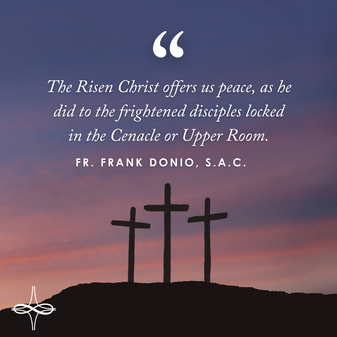 The hope of the Resurrection is the cause of our rejoicing during the Easter season. The Risen Christ offers us peace, as he did to the frightened disciples locked in the Cenacle or Upper Room. The Cenacle itself becomes then a place of deeper community that leads to mission. The mission Christ gives is not our own. It is his. We share in it. We go forth as witnesses of the Risen Christ from the community, are sent by the community, and return to the community. This must be done in integrity through not only saying what we believe but living it. Pope Francis recently provided some reflection on this: “Many Christians only say they believe, but they live something else, as if they did not. And this is hypocrisy. The opposite of witness is hypocrisy.” (General Audience on March 22, 2023) No one wants to be accused of being a hypocrite. Few of us will perfectly live the life of faith. Witnessing Christ is not about being perfect, but by being perfected by him through ongoing conversion of heart and mind. This is accomplished through the grace of the Sacraments provided by the community of faith, the Church. As St. Vincent Pallotti taught, we are called to cooperate with this grace so that we can witness the Risen One more authentically to the world as apostles. May the charity of Christ urge us on! Blessed Easter, Fr. Frank “Rejoice! Hidden within your life is a seed of resurrection, an offer of life ready to be awakened.” -Pope Francis The world in which we live is filled with distraction and noise. I realized this in a deeper way as a new mom nursing my newborn at all hours. During those late night feedings, I needed something to keep myself awake and found myself gravitating towards my phone more and more. It was easy to hold and look at in the dark, and I found it nearly impossible to concentrate on reading a book, let alone holding it open as my newborn moved about. By the time Lent rolled around, I had been watching online TV episodes, checking my various social media feeds consistently, or scrolling through house listing websites. In our culture, this type of electronic consumption is easy to fall into. And while these sites or activities are not necessarily wrong or evil, I felt that I was more and more consumed by things of this world. In prayer, I felt the Lord asking me to be consumed with Him rather than by materialism, technology, or my own desires. What we consume defines who we are and what we become. What started out as a way to keep myself awake in those exhausting first weeks and months of motherhood had become a small addiction. What if instead, I used those minutes and hours to pray, to be still with my thoughts, to be present to my son? I had a quiet Lent. Formally, I gave up “scrolling.” I did not look at social media feeds, online shopping websites, or TV shows. I also limited my consumption of music and movies. I felt that I had truly entered a desert and made an ongoing “silent retreat” without completely removing myself from the world. I was becoming a “contemplative in action” and realized that even as a parent and married person, I could still carve out time for Christ each day through silent reflection. Instead of consuming media, I prayed and I was silent. I used my phone only for Scripture reading or Catholic reflections. I prayed the Rosary and the Divine Mercy Chaplet. I read spiritual books. I thought of all the friends and family that had asked for my prayers. I offered up this media fast for them and for the needs of the world. This was hard. I noticed how many times my hand gravitated towards the screen. I noticed how much time I had spent behind one. Now that I have emerged from the season of Lent, I can’t help but wonder how I’ve changed. In his homily at the Easter Vigil this year, Pope Francis spoke of the changed faces of Mary Magdalene and the other Mary after they visited Christ’s tomb. The two brave women ventured out in the early hours of the morning “pale and tearful” and “walked like people going to a cemetery.” They had not yet encountered the Risen Lord. When they arrived, they were met with miraculous, life-changing news: “He has been raised just as he said!” The women leave rejoicing and run immediately to tell the disciples, to evangelize. Their faces are completely transformed. This leads me to reflect, “How has my face transformed this Easter season? Have I emerged from the tomb of Lent rejoicing?” Lent and Easter are about transformation—going from the tomb to new life. Christ is raised from the dead and extends this life to us all. He has opened the doors to our salvation. We don’t have to wait for death to experience this new life. By being consumed by Christ Himself, through prayer and most powerfully through the reception of the Eucharist, we are enabled to become Christ-bearers and share the joy of new life with all we encounter. Pope Francis invites us to experience and live this transformation in our everyday lives, saying: The heartbeat of the Risen Lord is granted us as a gift, a present, a new horizon. The beating heart of the Risen Lord is given to us, and we are asked to give it in turn as a transforming force, as the leaven of a new humanity. In the resurrection, Christ rolled back the stone of the tomb, but he wants also to break down all the walls that keep us locked in our sterile pessimism, in our carefully constructed ivory towers that isolate us from life, in our compulsive need for security and in boundless ambition that can make us compromise the dignity of others. After 40 days of penance and sacrifice, it’s tempting to go back to our old ways—to “carefully constructed ivory towers” and a “compulsive need for security.” “We can grow accustomed to living with the tomb,” Pope Francis cautions. This Easter season, we must decide to leave the tomb: to stay present, to pray, to choose to be consumed by God. I have learned that in so doing my life is made richer and more meaningful. When consumed by God, I am better able to be present to and love others. As we continue our victorious journey through the Easter season, I invite you to consider how your life has changed as a result of your Lenten journey. Have you emerged from the tomb? How has your face changed? For more resources on Lent and Easter, please click here. **This post was originally published on 5/2/2017**
It’s amazing to think that we have wandered with Jesus in the desert for nearly forty days now. I have taken this Lenten season to feel more connected with Jesus and strengthen my relationship with him in prayer. This past Sunday, the Church celebrated Palm Sunday, which commemorates Jesus’ journey into Jerusalem and marks the first day of Holy Week, one of the most important times in our faith. The rest of this week consists of Holy Thursday, Good Friday, Holy Saturday, and Easter, all of which are wonderful times to reflect on the strength and love shown by Jesus during his final days, his Death, and his Resurrection. The Gospel for this past week is one that I always find interesting to hear, as it gives a lot of insight into some of the traditions that we see during our usual Sunday services. For example, in this Gospel we hear about the Body and Blood of Christ at the Last Supper, “While they were eating, Jesus took bread, said the blessing, broke it, and giving it to his disciples said, ‘Take and eat; this is my body.’ Then he took a cup, gave thanks, and gave it to them, saying, ‘Drink from it, all of you, for this is my blood of the covenant, which will be shed on behalf of many for the forgiveness of sins. I tell you, from now on I shall not drink this fruit of the vine until the day when I drink it with you new in the kingdom of my Father (Mt 26:14—27:66).” While not the direct translation said during Mass, this is something that we hear every time we are at church, something that is just ingrained in the flow of Mass, yet here, in one of the most important readings in our faith, we see how it first began. I like to imagine myself as a fly on the wall during the Last Supper. How did the apostles react? What was their body language? Were they scared, confused, or excited to be with Jesus? Jesus knew what he was about to face on the Cross; he knew about his eventual Death and Resurrection. Yet, he knew his work before those events was not done; he had to continue to preach to the apostles. In hindsight, probably no one would’ve expected him to do that; he was facing death! Nowadays, people will say, “If you knew you only had one week left before you died, what would you do?” The usual answers are things like going on a fancy vacation, winning the lottery, and completing items on one’s bucket list, but the reality is that most of us don’t know when our time will come. On the contrary, Jesus did know what his fate would be when he entered Jerusalem. He knew the importance of his death on the Cross, and he knew it was important for him not to stray from his intentions. The strength shown by Jesus in this Last Supper is one that few could’ve shown, and it is important for us to recognize as we continue through Holy Week. As we finish up our 2023 Lenten season, I hope that you all have taken some time to deepen your relationship with Christ and reflect on the importance of the season in your own heart. May these last few days of Lent guide you through some of the darkest days of our Church into the glory of the Resurrection. I hope you all have a wonderful Easter celebration!
“He said to them: ‘… you will receive power when the Holy Spirit comes on you; and you will be my witnesses in Jerusalem, and in all Judea and Samaria, and to the ends of the earth.’ After he said this, he was taken up before their very eyes, and a cloud hid him from their sight. They were looking intently up into the sky as he was going, when suddenly two men dressed in white stood beside them. ‘Men of Galilee,’ they said, ‘why do you stand here looking into the sky? This same Jesus, who has been taken from you into heaven, will come back in the same way you have seen him go into heaven’” (Acts 1:7-11). Forty days ago, we celebrated the miraculous Resurrection of Jesus from the dead and joyful the start of the Easter season. Finally, after millennia of prophecies and expectation, the promise that humanity would be redeemed and restored in its relationship with God was fulfilled. Now Christ had risen in glory and conquered death by His Passion, allowing humanity to once again be united with its loving Creator (c.f. 2 Peter 1:4). This reunification of the disciples and their beloved Teacher was indeed a cause for celebration! What intense feelings of love and wonder must have resounded in the apostles’ hearts after their Master, Teacher, and Savior had been cruelly put to death only a few days ago. They believed that Jesus’ return meant that He would now “restore the kingdom to Israel” to finish His earthly ministry (Acts 1:6). “Not so, not yet,” Jesus corrects them (c.f. CCC 672). Instead, it was now time for Him to join the Father in Heaven since He had accomplished the Mission of atonement that He had been sent to earth for on the Cross (c.f. John 19:30). With that, Jesus was taken up before His followers into Glory. While they were still watching, whether out of wonder, awe, confusion, or fear as what to do next (perceptibly without Jesus), two heavenly messengers appear and urge the disciples not to stand there, looking up. Jesus would come again, they promised. Meanwhile, there was a mission to undertake; they were to go and wait for the Spirit, Who would help them take the next steps towards completing Jesus’ final instructions, which were, as St. Pope John Paul II put it, “the faithful expression of the Father’s will.” Before He was taken up, Jesus said to the disciples, “All authority in heaven and on earth has been given to me. Therefore go and make disciples of all nations, baptizing them in the name of the Father and of the Son and of the Holy Spirit, and teaching them to obey everything I have commanded you” (Matthew 28:18-20). Christ was planning something bigger than establishing a temporal kingdom on earth, as the Jews commonly thought their awaited Messiah would bring. The Apostles, moreover, were instructed to teach— to proclaim the Good News to the whole world. And they were to baptize in the name of the Father, and of the Son, and of the Holy Spirit. Like Jesus, they were to speak explicitly about the Kingdom of God and about salvation. The Apostles were to give witness to Christ to the ends of the earth. The early Church clearly understood these instructions and the missionary era began. And everybody knew that this missionary era could never end until the same Jesus, who went up to heaven, would come back again. (St. John Paul II, “Homily on the Solemnity of the Ascension of Our Lord,” May 24, 1979) We, too, in a sense, can stand with the apostles, looking heavenward to that place where our Lord ascended. We, too, can experience that intense wonder deep within each of us which transforms fear and tragedy, insecurity and tension into a peaceful certainty that floods the heart with loving warmth from God. From this, the same question posed to the disciples nearly two thousand years ago is asked of each of us even today: why do you stand looking up? The Church’s mission has always been that of the Great Commission, to spread the glorious, joyful, and redemptive news of Christ’s rising from the dead (c.f. John 3:16). As Saint Augustine testified, we are the Church and are commanded to accept this mission and not stand idly by in either amazement or apathy! Certainly, Holy Mother Church’s evangelization has endured obstacles, dogmatic disputes, and other setbacks over the centuries in bringing the Good News to the ends of the earth. No matter the challenge, the Church always pulls through since she has been founded by Christ Himself with the promise that “the gates of the netherworld shall not prevail against it” (Matthew 16:18). As the disciples and the Blessed Mother would experience on Pentecost Sunday, it is the Holy Spirit, the gift of the Father, Who is the source of the Church’s strength. It is He Who guides the Church in the way of Truth in the spreading of the Gospel, doing so through the power of God and not by means of the imperfect wisdom or strength of man. After having undergone the humiliation of His passion and death, Jesus took His place at the right-hand of God; He took His place with His eternal Father. But He also entered heaven as our Head whereupon, in the expression of Leo the Great, the glory of the Head became the hope of the body… our nature is with God in Christ. And as man, the Lord Jesus lives forever to intercede for us with Father. At the same time, from His throne of glory, Jesus sends out to the whole Church a message of hope and a call to holiness. Because of Christ’s merits, because of His intercession with the Father, we are able to attain justice and holiness of life, in him… The power of the glorified Christ, the beloved Son of the eternal Father, is superabundant, to sustain each of us and all of us in the fidelity of our dedication to God’s Kingdom. The efficacy of Christ’s Ascension touches all us in the concrete reality of our daily lives. Because of this mystery it is the vocation of the whole Church to wait in joyful hope for the coming of our Savior, Jesus Christ. (St. John Paul II, “Homily on the Solemnity of the Ascension of Our Lord,” May 24, 1979) As part of the “New Evangelization,” we are reminded of this command to reveal the Truth of our resurrected Lord through our words and actions in accordance with how we are called to live as Christians, that is, with love (c.f. John 13:34-35). Like the evangelizers before us, we can expect face challenges when spreading the Gospel message, namely persecution (c.f. John 15:18, Romans 8:35-39, 2 Timothy 3:12, 1 Peter 4:16-19). Ah, but what a price to pay for the glory of God! Remember, too, that Christ promised that He would always be with us in our ministry (c.f. Matthew 28:20, Galatians 2:19-20)! As Pope Francis noted during his fourth general audience, Jesus is no longer “in a definite place in the world as He was before the Ascension… He is now in the lordship of God, present in all space and time, next to each of us.” We can always turn to Him in prayer; He, in turn, will sustain us with strength, grace, and Love. Given the difficulty of our task (often requiring great sacrifice on our part), this is indeed a great comfort! In addition, it is Christ as both God and man Who brings our humanity before God to intercede for us. Finally, the Ascension of the Lord is also our Feast because we have ascended with the Lord! The Feast presents an opportunity to reflect upon the relationship between our profession of faith and our daily life. It is the start of the evangelization of the world by Christ’s disciples and the call for us to do that same Work, started nearly two millennia ago, in joyful witness to the Redeemer of the world. The Solemnity of the Lord’s Ascension must also fill us with serenity and enthusiasm, just as it did the Apostles who set out again from the Mount of Olives “with great joy” (Luke 24:52). Like them, we too, accepting the invitation of the “two men in dazzling apparel”, must not stay gazing up at the sky, but, under the guidance of the Holy Spirit must go everywhere and proclaim the saving message of Christ’s death and Resurrection. His very words, with which the Gospel according to St Matthew ends, accompany and comfort us: “and lo, I am with you always, to the close of the age” (Matthew 28:20). (Pope Emeritus Benedict XVI, “Homily of His Holiness During the Pastoral Visit to Cassino and Monte Cassino,” May 24, 2009 **This post was originally published on 5/24/2014 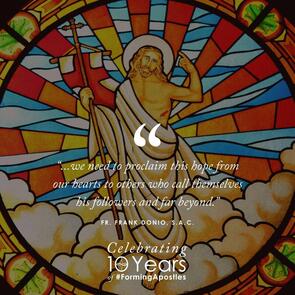 “Brothers and sisters our hope has a name: the name of Jesus.” –Pope Francis, Easter Vigil Homily 2022 Easter has arrived. We celebrate the Risen Christ. In our remembrance of the Passion and death of Jesus on Good Friday, we know the rest of the story. Or do we? We may know it in our minds. Do we feel it in our hearts, feel the joy of our hope that “has a name”? Pope Francis points out in his Easter Vigil homily that the joy of the Resurrection of Jesus is not something to keep to ourselves. We need to proclaim it! Like the women going to the other disciples in the Upper Room, we need to proclaim this hope from our hearts to others who call themselves his followers and far beyond. It is easy for doubt and despair to enter in even within the community of faith. These can dampen our hope. We human beings are the ones who try to limit hope, somehow thinking that we are in control. We are not. Hope in the Risen Christ is limitless. His love, mercy, and compassion are infinite, leading us to ultimate hope –salvation. Alleluia, Christ is Risen! Alleluia, Christ is Risen indeed! Alleluia, Christ is our hope! May the charity of Christ urge us on! Blessed Easter, Fr. Frank From the evening Mass of the Lord’s Supper until Evening Prayer on Easter Sunday, the Church celebrates a very special period called the Paschal Triduum. As the USCCB explains, the Easter Triduum is the summit of the Liturgical Year which “marks the end of the Lenten season.” Because of this important spiritual shift, there are some symbols used during this liturgical season that are unique to the Paschal Triduum, and I hope that you might find and reflect on these symbols this year as we commemorate the life, death, and Resurrection of Christ. Holy Thursday Holy Oils The Holy Oils that are used by the Church throughout the year (Oil of the Sick, Oil of the Catechumens, and Holy chrism) may be presented during the entrance procession of the Mass of the Lord’s Supper on Holy Thursday. These oils are blessed by the Bishop during the Chrism Mass—which can happen on Holy Thursday or another time during Holy Week—with the priests of the diocese gathered at the local cathedral. During this celebration, all of the priests present renew their priestly vows. Ringing of the Bells During the “Gloria” which is sung on Holy Thursday, we hear the altar bells ringing! We are celebrating the Mass for the last time until the Easter Vigil, and the Church is in mourning so the bells will remain silent until we sing the “Gloria” again. Washing of the Feet As Jesus did at the Last Supper (John 14:1-17), the Church is called to wash the feet of the members of the Body of Christ during the celebration of the Institution of the Eucharist. This symbol of humility is a wonderful connection with the service of Christ. Ubi Caritas It is rare that the Church prescribes a specific hymn to be sung other than those prescribed for the Proper of the Mass, yet on Holy Thursday the Roman Missal says that we should sing the ancient song “Ubi Caritas” during the Offertory. A very simple song, the lyrics are very meaningful, especially for the Mass of the Lord’s Supper. Translated, they mean "Where charity is, God is there." Eucharistic Procession and Reposition The Church’s tabernacle, while normally filled with the Blessed Sacrament and reserved hosts, is emptied and brought to the Altar of Repose where the faithful are invited to join in Adoration. This procession is meant to be of great importance for the community and reminds us of the walk that Christ is about to take the following day on the Via Dolorosa, but instead of being nailed to a cross, we place our King in a place of honor. Good Friday Fonts After the Mass of the Lord’s Supper on Holy Thursday, churches are supposed to empty their Holy Water fonts “in preparation of the blessing of the water at the Easter Vigil, and it corresponds to those days on which the Eucharist is not celebrated (i.e., Good Friday and Holy Saturday).” (EWTN) Prostration On Good Friday, the Church is mourning the death of Christ and is full of sorrow. In response to this sorrow, the priest (and deacon, if present) prostates himself in front of a stark, barren altar. There is no music and none of the regular pomp and circumstance that comes with the beginning of a liturgical celebration. No sacraments are to be celebrated but that of penance and the anointing of the sick. The earth has gone quiet. No Invitation Normally, when a priest begins Mass, he invites us all to pray along with him, saying, “Let us pray.” During the Celebration of the Lord’s Passion (Good Friday), no such invitation is made. The priest just begins his invocation. Solemn Intercessions You may find that the prayers of the faithful may take longer than normal. Your church may sing them or have them chanted, with some kneeling and standing interspersed. Adoration of the Holy Cross There are many ways in which the Celebration of the Lord’s Passion is different from other liturgical celebrations, and the adoration of the Cross is certainly one of them. We are invited to come forward and spend time in veneration and adoration of the Cross on this most solemn of days – the day on which Christ perished while hanging from the very cross which we venerate. You may notice people genuflecting to the cross – this is something reserved specifically for Good Friday, out of veneration and sorrow for the blood which was shed and soaked up by the wood of the cross. Communion The Celebration of the Lord’s Supper is not a Mass. It is the one day out of the year in which no Mass is celebrated anywhere on Earth. Therefore, when we come to the celebration, there is no Eucharistic Prayer or any prayer related until, after the Adoration of the Holy Cross, the priest or deacon brings out the Blessed Sacrament and begins praying the Agnus Dei as it is normally done at Mass, which follows with himself and others receiving the Blessed Sacrament. Holy Saturday and the Easter Vigil Decoration When one walks into the church for the Easter Vigil, they will notice a big change from the celebrations of Lent and Holy Week – the church should be decorated with lilies, white and gold, and a joyful décor! While the lights should be turned down as well, we are anticipating the Resurrection and the excitement is palpable! The Light of Christ From the fire used to light the Easter Candle, the inscriptions on the Easter Candle, and the procession into the Church, light is integral to the Easter Vigil due to its representation of the "light of Christ, rising in glory," scattering the "darkness of our hearts and minds." We process into the Church with the Easter Candle, “just as the children of Israel were guided at night by the pillar of fire, so Christians follow the risen Christ” as we proclaim The Light of Christ while singing praises of thanksgiving! (USCCB) Readings Instead of the standard 3 readings at a Sunday Mass, at the Easter Vigil we generally hear anywhere between 5 and 9 readings. As we prepare to celebrate some of the holiest days in our Church, I invite you to observe the different rituals, customs, and symbols present during the Triduum. May you have a blessed and joyous Easter season! Question for Reflection: What changes do you notice from the Lent to Easter season? For more resources to guide you throughout the Triduum into the Easter season, please click here. *This post was originally published on 4/9/2019.
8/24/2021 It Will All Fall Into Place: Reflections on Graduating During the COVID-19 PandemicRead Now2020 was a difficult year for so many people; it is safe to say that we all were impacted in some way. To me it felt like the entire world stopped and everything started moving in slow motion. March 2020 was my senior year of college—what was supposed to be the best semester of my life, the beginning to the end, the start of a new chapter. Yet, there I was, driving back to my family home in Massachusetts to study and then graduate in the home that I grew up in. I felt so crushed, defeated, and overwhelmed. I remember that Easter, only a few weeks into the pandemic, feeling so overjoyed that some of my friends and parish community decided to come together and celebrate our Risen Lord. We had a drive-by celebration in the parking lot where our pastor blessed each of us and we waved at our friends from the safety of our car. I felt so overjoyed to see their faces and to get a glimpse of normalcy. I remember that Easter morning being filled with joy, possibly the Lord’s way of showing us that there is a light at the end of the tunnel. Yet, around that same time, we found out that school was cancelled for the rest of the semester and Zoom became our new normal. I remember thinking, “The last time I stepped into a classroom was the day before spring break and all I wanted to do was get out of there, but now, I’ll never be able to go back.” While that may have been a bit dramatic, it truly was a time where my faith was the only thing that was able to guide me. While I was upset over the loss of my senior year and the loss of long-anticipated memories, I was so thankful and blessed to have my health, my family, and my faith. There were so many people grieving the loss of family members, enduring financial difficulties, and risking their lives on the frontlines of the pandemic. It was hard not to laugh at myself for crying over my difficulties when faced with the reality of what was going on throughout the world. The Lord guides us on a path. Though we may not know where or how it ends, we know He is there. I knew this time in my life would already be difficult—saying goodbye to friends, trying to find a “real” job, and trying to balance new responsibilities. Adding to that the uncertainty of a pandemic only exacerbated the overwhelming anxiety I knew was around the corner. I kept repeating this phrase over and over in my head: “it is all part of God’s plan.” The phrase kept rekindling faith in my heart when things began to feel difficult. It can be seen as a silly, trite phrase. But for me, the impact it had on my life was so important. It helped me to have a conversation with the Lord daily—whenever things felt tough or I felt defeated or just lost. After repeating the simple phrase over and over in my head, I felt the Lord’s presence like a hand on my shoulder continuing to guide me throughout life. I couldn’t help but exhale. Graduation came and went. I wore my cap and gown in my childhood living room surrounded by my parents trying to figure out how to set up Zoom on the T.V. It was an underwhelming experience compared to the grand festivities I had imagined, yet I was very thankful to be able to celebrate with my parents. Trying to navigate through “adult life” during the pandemic proved to be difficult within itself. It felt so easy to isolate myself from those around me and to disconnect from everything. Everything seemed big: applying for jobs, getting my first apartment, living in the city. It often felt easier to give up when things got difficult. But that is exactly the opposite of what the Lord calls us to do. The Lord wants us to call upon him during the difficult times and to remember that everything is part of his plan. He is there to walk with us through the ups and downs and invites us to lean upon his strength in times when ours fails. While the road ahead seems uncertain, there is one thing that we can count on - the love and support of the Lord. Over the past year, what I have found is that everything is part of His plan; every small step we take, every thought that enters our mind, every mundane task—it all will fall into place. “Why are you standing there?” The angels who spoke these words to the astounded disciples now turn to ask us this question today. Perhaps, like the disciples after the Ascension, we too have been stuck looking up at the sky, wondering where Christ is. Our answers to the angels’ question are probably very legitimate. “I am standing here because of the pandemic, because I lost my job, because of isolation, because of sickness, because of racial discord, because of people’s differences, because I don’t know what else to do.” In this passage from today’s Gospel reading, which is the same as this upcoming Sunday’s, I remind myself that at least the disciples were looking up. They at least had their eyes fixed on Christ. That, in and of itself, is a good thing. But what God wants to convey through the angels after Jesus’ Ascension is that just seeing Christ or believing in him is not enough. A relationship with Christ results not in paralysis, but in action. “You will be my witnesses,” Jesus tells his disciples moments before he ascends to the Father. And it is by living out our relationship with Christ as witnesses that the world comes to know him and that our faith comes alive. Witnessing to our faith and accompanying others on their faith journeys shake us out of our paralysis and help us overcome our fear. Jesus is not conveying that hardship, suffering, or unrest will be absent from our lives, but that these no longer have the power to paralyze and trap us. His Resurrection has changed the narrative. And as the Easter season comes to a close, Jesus is calling us not only to believe in him, but to act— to have our lives transformed by the knowledge of the Resurrection and to live boldly and faithfully as a result. At this point, however, the disciples are still focused on earthly things. Just before Jesus’ Ascension, they ask him, “Lord, are you at this time going to restore the kingdom to Israel?” Many of us have similar questions. “Lord, at this time will I get my job promotion? As this time, will my addiction be healed? At this time, will the pandemic end? At this time, will our family be reconciled?” These are valid, important questions of the human heart. Questions that long for answers, for resolutions, for miracles. Jesus’ response seems mystifying and even unrelated: “You will receive power when the Holy Spirit comes upon you, and you will be my witnesses.” While the disciples are still caught focusing on the restoration of Israel and victory over their oppressors, Christ promises more. So much more, in fact, that they are unable to grasp it without the gift of the Holy Spirit, whose coming we celebrate on the Feast of Pentecost on May 23rd. It is why Jesus chose to ascend at this time. He had spent 40 days teaching and opening the Scriptures to his disciples after his Resurrection, but they still could only fathom human goals and objectives. Jesus knows his ministry has come to an end and that a new chapter of the Church will begin with the promised Advocate, the Holy Spirit. After he answers them, Jesus compels his disciples to look up to the heavens as he begins to ascend to the Father. He is physically showing them the needed disposition of their hearts and minds in order to receive the Holy Spirit: they should be considering heavenly things and a heavenly goal. But then, moments later, they are startled to hear: “Why are you standing there looking at the sky?” It can be tempting at times to separate ourselves from the reality of the here and now by over-spiritualizing things or being preoccupied with the past or future. The disciples are left looking up (very understandably), but this looking up and clinging to Jesus in his physical form distracts them from the action to which he has called and chosen them: to be his witnesses to the ends of the earth. This balance between living in the world but not of it can be difficult to grasp and practice. It’s important first to consider where you find yourself today. Are you asking the Lord to restore the kingdom to Israel? Are you standing looking at the sky? Many of us are somewhere in between. Below are 6 practices that help ground me in Christ and deepen my ability to witness to his love:
By considering these practices, it is my hope that, renewed by the Holy Spirit at Pentecost, we will enter into Ordinary Time ready to be Christ’s witnesses to the ends of the earth. Christ calls us each to so much more than simply remain standing. For more resources on living as missionary disciples, please click here. |
Details
Archives
July 2024
Categories
All
|
About |
Media |
© COPYRIGHT 2024 | ALL RIGHTS RESERVED

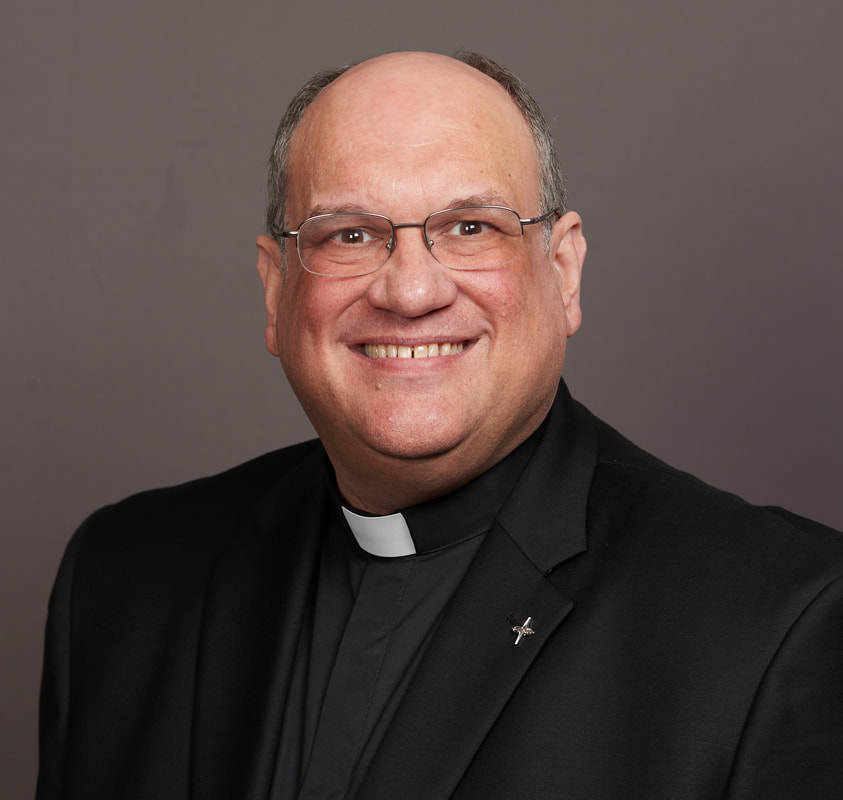
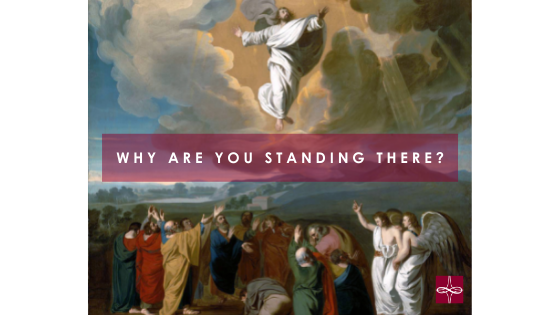

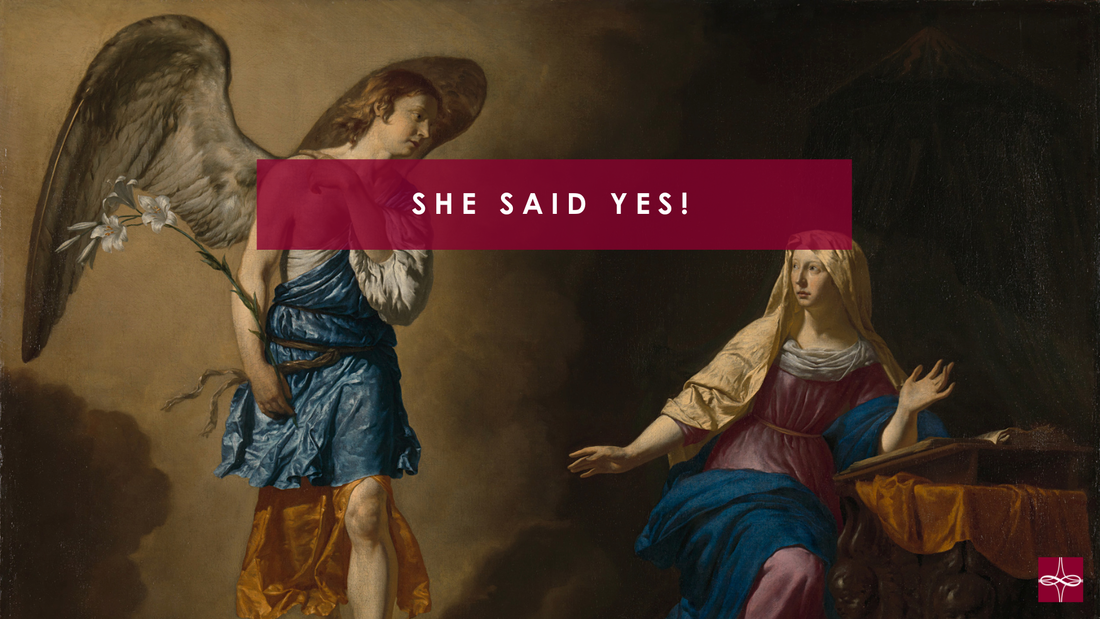

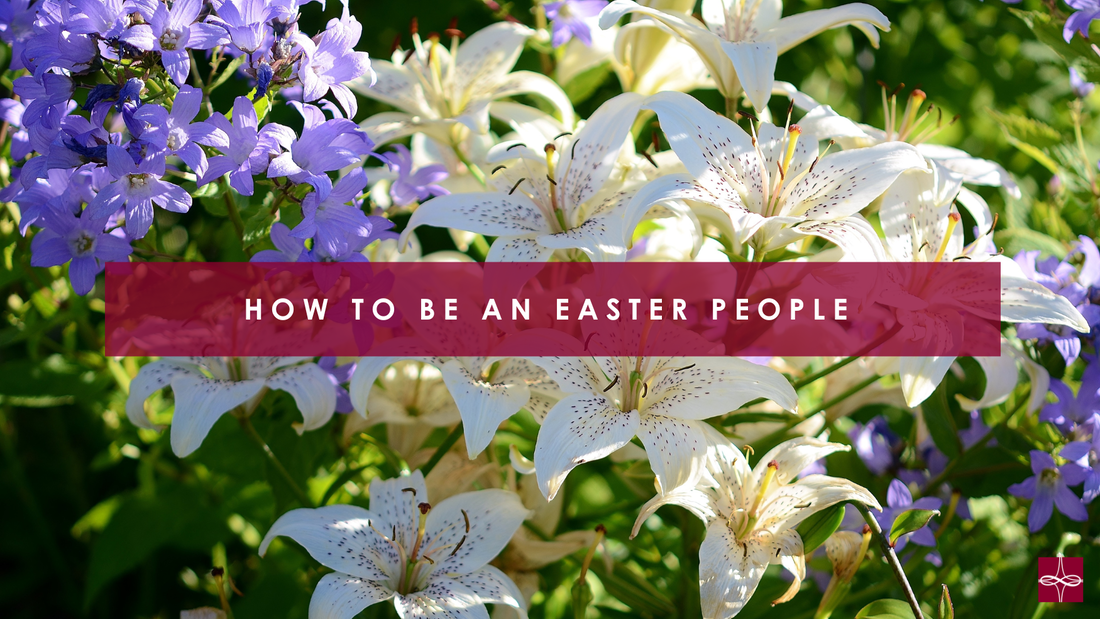

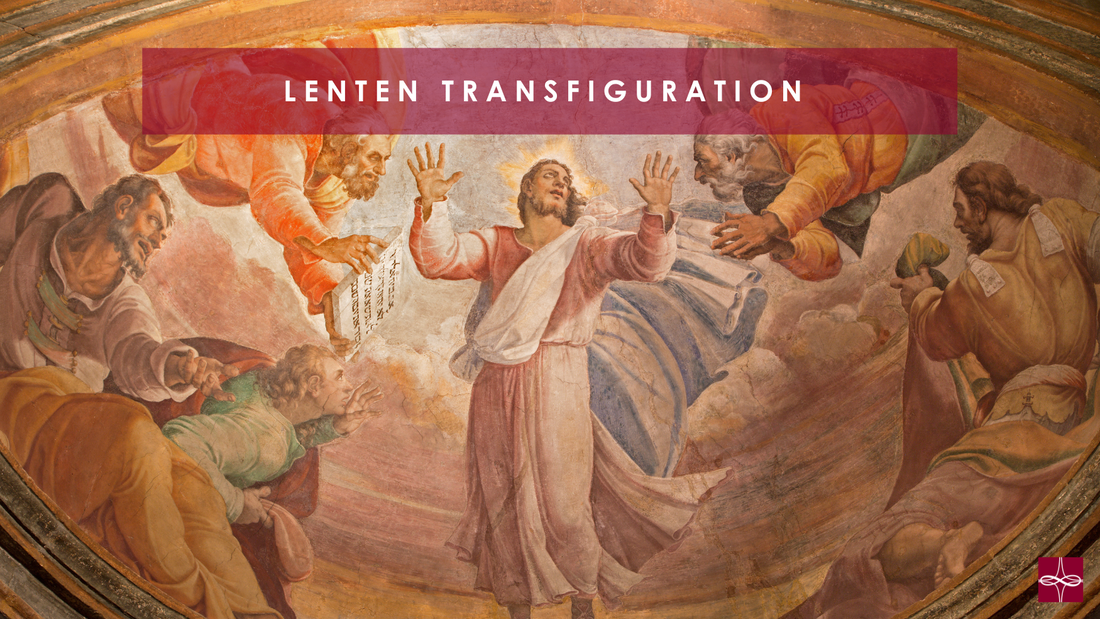
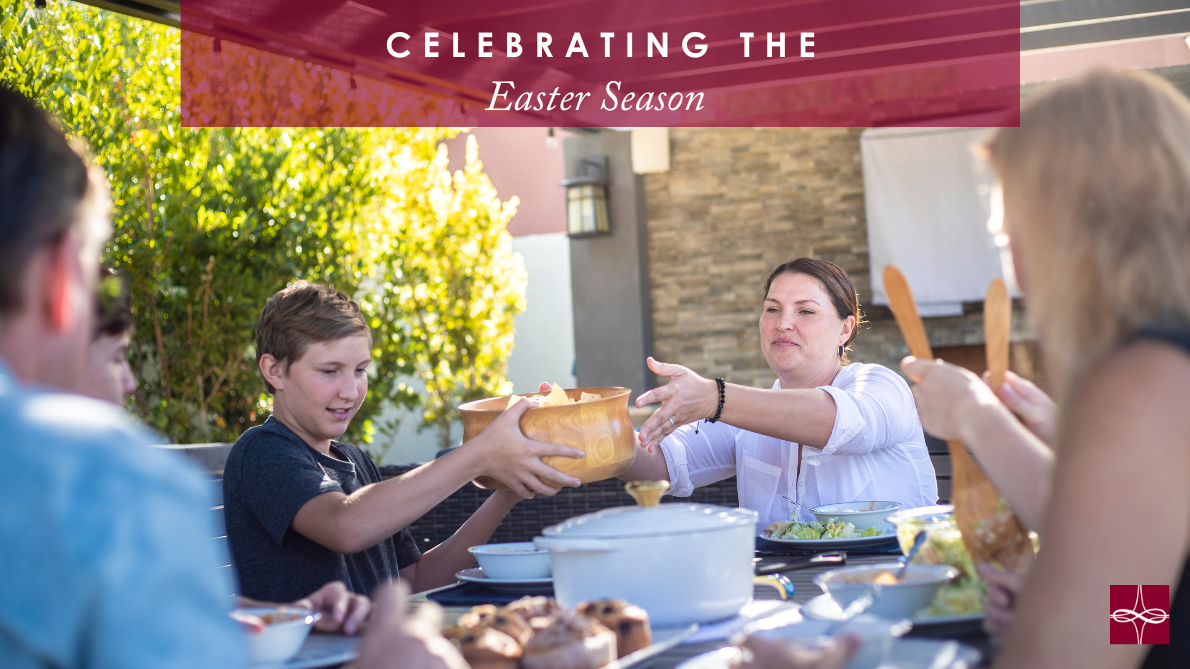

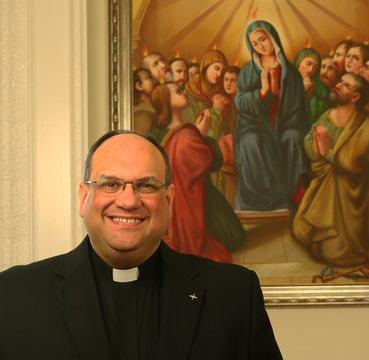
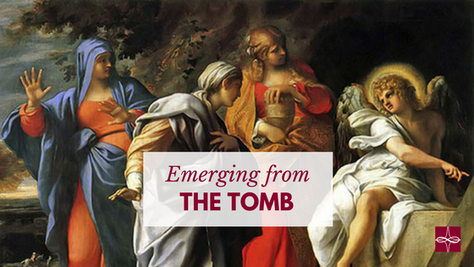

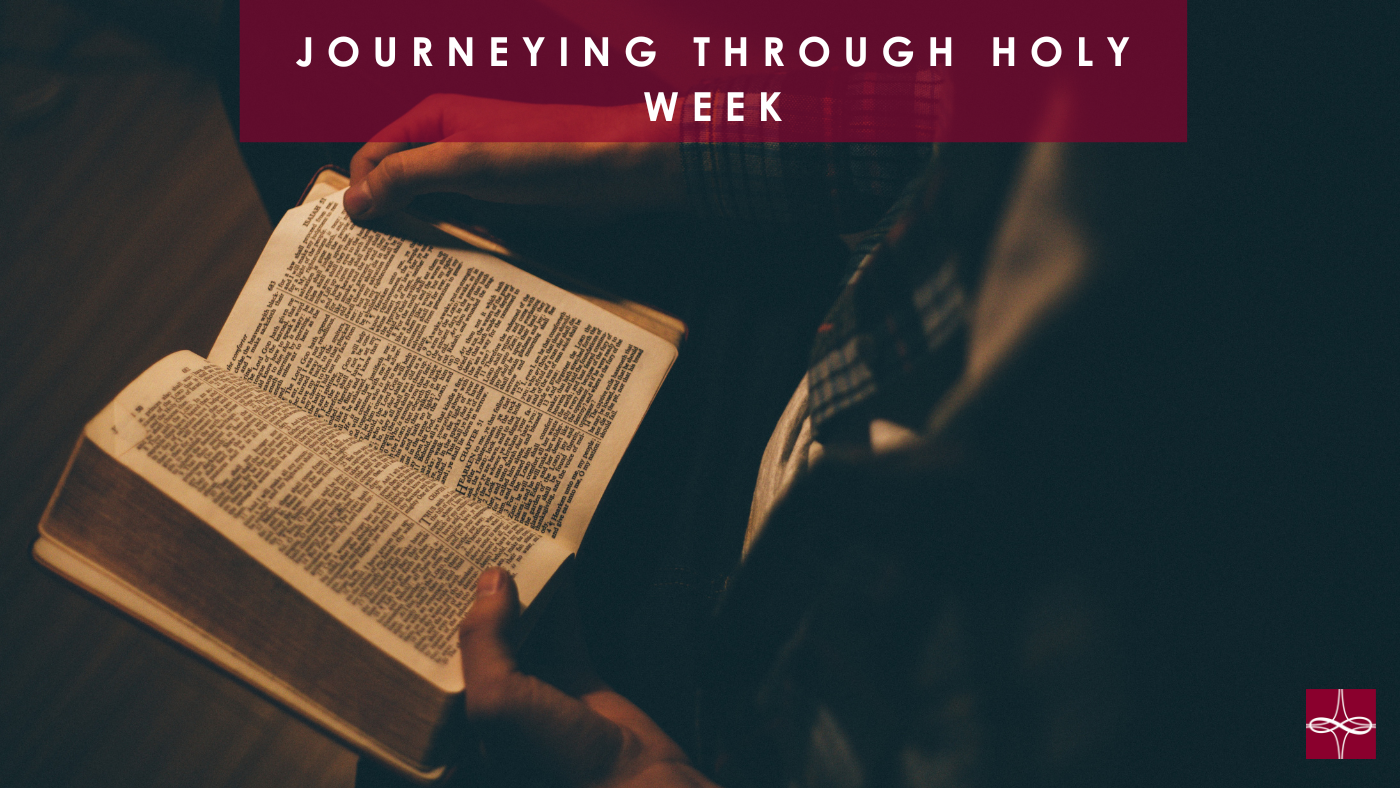

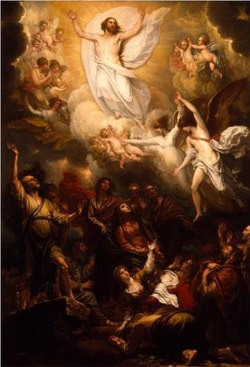

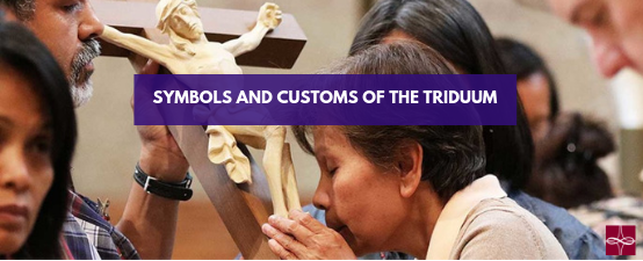
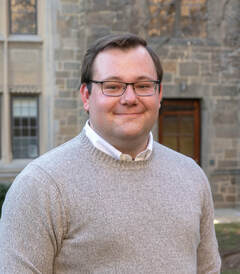



 RSS Feed
RSS Feed